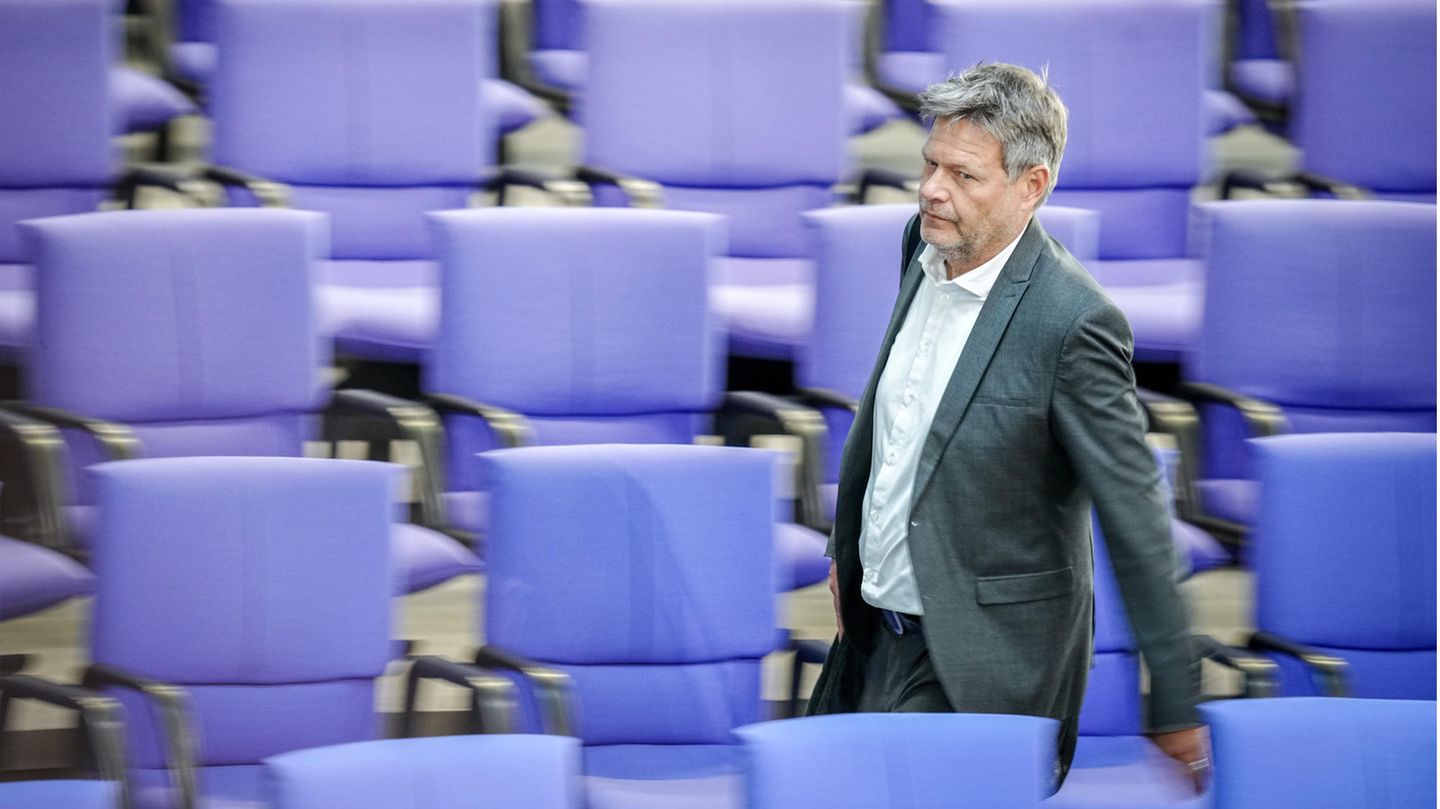In the debate about the heating law, Robert Habeck is ready for further adjustments, which primarily follow the line of the FDP. So far, the coalition partner has prevented the parliamentary negotiations.
In the dispute over the heating law that has been going on for weeks, Federal Minister of Economics Robert Habeck (Greens) is ready to make extensive improvements to the draft. He wanted to “make the law better,” Habeck told the Funke newspapers, and suggested, among other things, a staggering of the particularly controversial start date for the law and improvements in openness to technology. Habeck is sticking to the goal of getting the law through the Bundestag before the summer break.
According to the draft, the Building Energy Act stipulates that from 2024 only new heating systems should be installed that are operated with at least 65 percent renewable energies. There was a dispute recently about the start of the law and the exact design.
Habeck names four possible approaches
The FDP prevented the start of parliamentary negotiations and sent the Ministry of Economics 77 questions about the law – on Tuesday next week Habeck wants to meet with representatives of the three traffic light groups to “answer these and any other questions,” said Habeck’s ministry. A spokeswoman also said Habeck had “made it clear that we take the criticism seriously and that we are ready to make the law better”.
Habeck now named four possible areas for improvements – initially a staggering at the start: “We could start switching for new buildings from January 1, 2024. That then affects the new buildings that will be approved from January,” he said loudly to the Funke media group Friday report. “With the existing buildings, I would like to take up the desire for more time.” Here the challenges are greater.
In view of the lack of craftsmen and delivery bottlenecks, “a little more time is also a help,” Habeck continued. The exact time frame must now be agreed in the parliamentary process and in talks with social groups. In the coming week, there will be a number of appointments with associations, among other things.
Insulate, generate electricity, change
Twelve tips on how to reduce your energy costs as a tenant
Scope for openness to technology
In addition, Habeck sees further scope for openness to technology when it comes to heating. The draft already provides for “eight options”. “But we should strengthen that again, as the debate about wood pellets shows.” Here he sees scope. The previous plans stipulated that biomass heating systems should no longer be permitted in new buildings. The Ministry of Economics referred to the limited availability of the fuels, which should therefore primarily be used in stock.
Habeck also announced to the Funke newspapers “soon a package of measures for the expansion of local and district heating”. The recently presented heat planning law will give heat networks a boost, he said, and suggested that the transitional periods then be “better synchronized with the construction and expansion of a heat network”.
Last but not least, the Economics Minister also wants to examine improvements in the transitional periods for climate-friendly heating systems. In addition, a “pragmatic, unbureaucratic hardship regulation” is necessary so that nobody is asked to do anything “that he or she cannot afford”.
“My aim is not only to unite the coalition factions behind this law, but also to get social support for climate protection,” Habeck told the newspapers. He understands that the debate about the heating law unsettles many people and that the draft raises questions and concerns.
However, it is still “important that the law goes through the Bundestag before the summer break”. This now requires “a willingness to compromise on all sides”.
At least in the coming plenary week from June 12, the law is again not on the agenda of the Bundestag. According to the Greens, the Council of Elders agreed on the provisional agenda and the FDP “again blocked drafting of the Building Energy Act for the first reading”. However, the final decision on the agenda is still pending and will take place during the week of the meeting itself.
“The ability of the traffic light to work is further damaged by the behavior of the FDP,” said Green Party Vice Julia Verlinden. Parliamentary culture is also suffering. “Parliamentarism does not mean blocking, but rather advising in order to make laws better.”
The time for a consultation before the summer break is now gradually disappearing: there are still three weeks of sittings in the Bundestag until then.
Source: Stern
I have been working in the news industry for over 6 years, first as a reporter and now as an editor. I have covered politics extensively, and my work has appeared in major newspapers and online news outlets around the world. In addition to my writing, I also contribute regularly to 24 Hours World.




